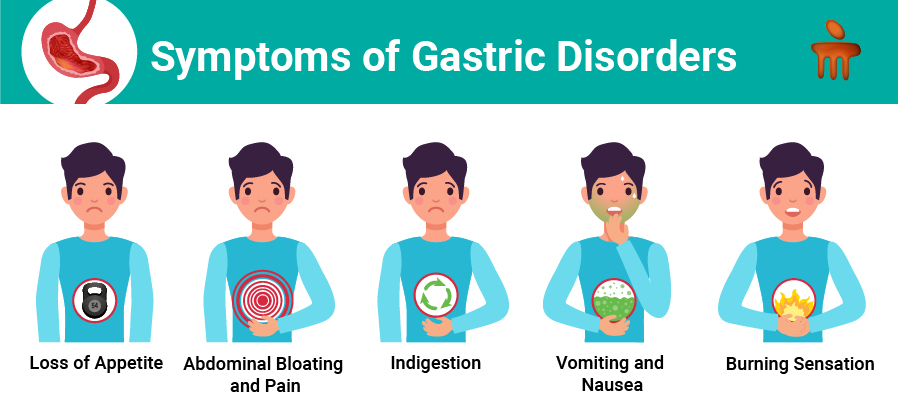
With the surging consumption of foods loaded with sugars, oil and trans fats, the prevalence of gastric disorders has risen massively over the last two decades. Data sourced from recent research conducted by a Pan-India FMCG company has revealed that as much as 56% of families in India have reported digestive issues in the last few years. In addition, it was found that acidity, gas and indigestion have emerged as the top three digestive health issues in the country as over 50% of the respondents reported suffering from at least one out of the three.
The onset of the summer season and the growing mercury levels, especially in the northern parts of the country, have massively augmented the risk of gastrointestinal disorders. According to Dr. Charu Goel Sachadeva, HOD and Consultant, Internal Medicine, Manipal Hospital, Dwarka, the incidence of gastrointestinal disorders is surging sharply owing to the ongoing heatwave in the country. This is primarily attributed to the fact that the heatwave is causing contamination of food and water, which is, in turn, propelling the prevalence of diarrhoea, vomiting and jaundice.
Additionally, the incidence of viral infections is also rising on account of the sudden change in climate. Some of the most common symptoms of these disorders include watery motions, dehydration, vomiting, abdominal pain and sometimes, even blood in stools. Jaundice and typhoid are two of the most prevalent diseases caused due to the consumption of contaminated water. These illnesses are associated with fatigue, stomach ache, headache and pain. Thus, to mitigate the risk of these disorders, hydration is extremely necessary during these hot summer days.
Visit the best gastroenterology hospital in Bangalore if you require treatment for any type of gastric disorder.
Common Symptoms of Gastric Disorders

While some cases of gastric disorders are generally minor and can be treated easily, other problems can be quite severe and require the intervention of medical practitioners. Gastric problems are usually associated with the following symptoms:
-
Indigestion
-
Loss of appetite
-
Headache
-
Increased pain and pressure in the chest area.
-
Nausea and vomiting
-
Dizziness and fatigue
Stomach pain is another highly prevalent symptom of gastric disorders. Dr. Supraja Chandrashekar, Paediatric Intensivist, Manipal Hospitals, Yeshwantpur explains that vomiting, persistent fever for one or two days, stomach pain and loose stools are among the most common symptoms of gastric problems, especially in children.
How are Gastric Disorders Caused?
Gastric problems are caused due to:
Upper Intestinal Gas
Swallowing gas via smoking, chewing gums, loose dentures, fast eating and drinking through a straw is one of the primary causes of upper intestinal gas.
Lower Intestinal Gas
Lower intestinal gas is produced when intestinal bacteria act on the undigested food in the large intestine. The excessive build-up of lower intestinal gas can lead to stomach cramps and even indigestion. Some of the foods that cause the build-up of lower intestinal gas are:
-
Fruits, such as peaches, apples and pears.
-
Vegetables, such as cabbage, onions, asparagus and beans.
-
Starches including pasta, corn and potatoes.
-
Spicy and fatty foods.
Lactose Intolerance
Lactose intolerance is caused due to lactose malabsorption which occurs when the small intestine makes low levels of lactase (the enzyme that breaks down lactose) and can’t digest the lactose present in milk and other dairy products.
Ulcers
Also known as gastric ulcers, stomach ulcers are painful sores in the stomach lining. They affect the small intestines as well as the stomach and occur when the thick layer of mucus that protects the stomach from various digestive juices gets damaged. Stomach ulcers can become severe without timely medical intervention.
Gastritis
This condition occurs when the lining of the stomach gets irritated because of the bacterial infection caused by Helicobacter pylori. It is accompanied by symptoms, such as vomiting, belching and bloating.
Acidity
Also known as acid reflux, acidity is a common medical condition caused because of excessive acid production in the stomach which flows into the oesophagus and causes a burning sensation in the lower chest region. As per nutritionists, an unhealthy lifestyle and poor food habits are primarily responsible for acidity.
Irritable Bowel Syndrome
It is a type of functional gastrointestinal (GI) disorder and makes the digestive tract very sensitive. It also changes the way bowel muscles contract, which subsequently leads to constipation, diarrhoea and abdominal pain.
Celiac Disease
It is a chronic digestive and immune disorder that affects the small intestine. It is triggered by consuming foods containing gluten and can cause long-lasting digestive issues, thereby making it difficult for the body to get all the nutrients it needs.
Crohn’s Disease
It is an inflammatory bowel disease that causes chronic inflammation of the gastrointestinal (GI) tract, which leads to diarrhoea, malnutrition, weight loss and abdominal pain. Crohn’s disease can be debilitating as well as painful and can cause life-threatening complications if left untreated.
Basic Treatments for Gastric Disorders
-
While acute gastric pain can go away without any medical treatment by just consuming a bland diet and taking adequate rest, some patients may require one or sometimes even two rounds of antibiotics for recovery. Drugs, such as H2 blockers, are often prescribed by doctors for treating heartburn (acidity). These drugs minimize the amount of acid produced by the stomach by inhibiting the acid-releasing cells from reacting to histamine. Additionally, H2 blockers prevent the development of peptic ulcers again.
-
Medicines are generally not prescribed for treating gastrointestinal disorders caused due to season change. As per Dr. Supraja, patients with stomach issues are usually given probiotics. Moreover, hydration with fluids containing a balanced composition of salt, sugar and water is strongly advised to provide relief from diarrhoea and stomach pain.
-
To treat conditions caused by Helicobacter Pylori, short-term triple therapy is usually recommended by doctors. Peptic ulcers, if caused because of an H.pylori infection, will require treatments, such as therapy (short-term triple therapy). In some rare cases where patients do not experience any positive outcomes even after taking the prescribed medications and undergoing endoscopy, surgery is advised which generally includes vagotomy (cutting of the vagus nerve) and semi-gastrectomy (partial removal of a part of the stomach).
Also, learn about food poisoning in Summer Season from our expert gastroenterologist. Click here
Does Gastritis Go Away on Its Own?
Gastritis can be chronic or acute depending on the symptoms and the cause of the disease. Acute gastritis is caused due to unhealthy lifestyles and it is usually short-lived and sudden. This type of gastritis generally goes away on its own. On the other hand, chronic gastritis does not go away on its own and the symptoms continue to affect the patient even after six months or a year, which, in turn, leads to more complicated situations, such as loss of appetite, vomiting, nausea and imbalance digression. People suffering from chronic gastritis must consult a doctor immediately as the condition might be a symptom of an underlying disorder like stomach cancer.
Is it Possible to Treat Gastritis Permanently?
In most cases, gastritis can be cured easily with some simple lifestyle changes and home remedies. Besides, gastric problems can also be treated by:
-
Taking probiotic supplements which helps to boost the immune system and prevent the reoccurrence of symptoms.
-
Consuming over-the-counter medications like antacids to get relief from stomach problems.
-
Avoiding foods and drinks that trigger gastritis, such as alcohol, fatty foods, aspirin, spicy foods and pain medications.
-
Making lifestyle alterations, such as managing stress and losing weight.
-
Eating small, frequent meals instead of larger meals which are difficult to digest and may trigger acid reflux.
Consult a top gastroenterologist in Bangalore for diagnosis and treatment of gastritis.





















 7 Min Read
7 Min Read













